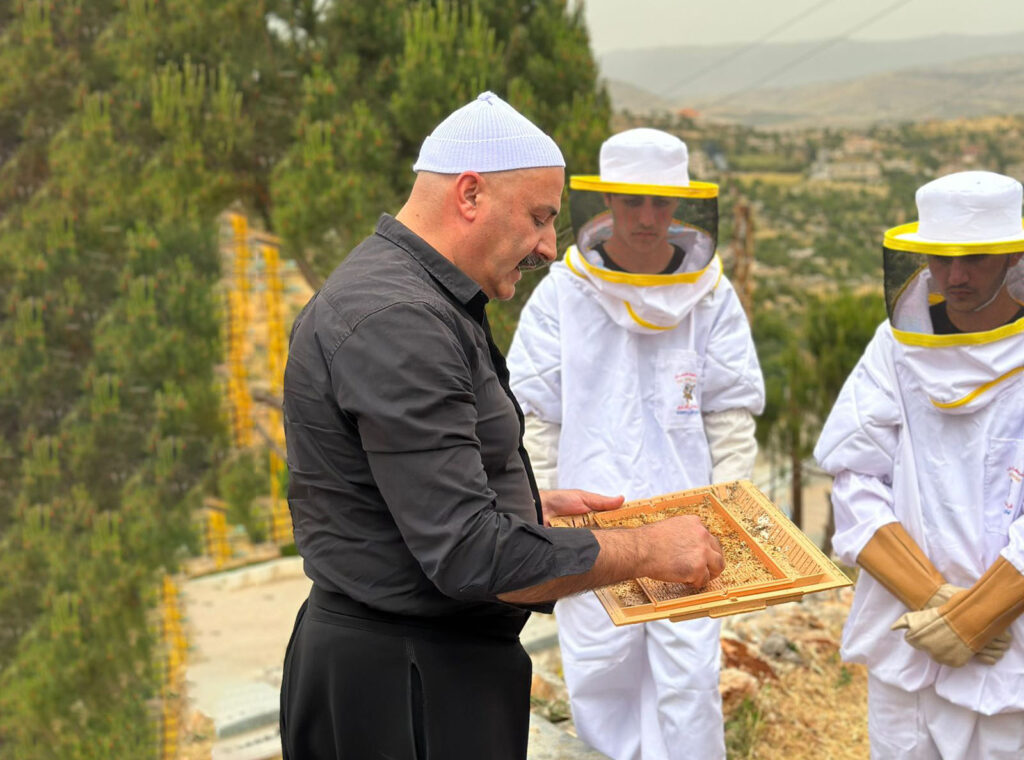Project Context
Located in West Bekaa, Rashaya Public High School proudly serves more than 300 students.
The school’s team follows a positive culture of trust with parents. This helps everyone work together eagerly to achieve their shared goals. This is evident in the project they decided to take on.
Project Description
In Rashaya, a pressing environmental and social crisis was emerging. The area had suffered from multiple challenges including fires and overuse of pesticides which was detrimental to its natural resources.
Aspired to tackle this environmental and community problem, 75 students from grade 10 and 11 were provided with upskilling opportunities that enhanced their social and entrepreneurial skills. At first, they underwent a series of training sessions in partnership with the Society for Protection of Nature in Lebanon (SPNL) to learn more about nature protection.
Following this, they engaged in activities that revolved around raising awareness and funds, aimed towards protecting nature and planting new vegetation. They utilized 8000 square meters of land close to the school premises that was previously donated to them and that was once used for farming and the cultivation of a wide range of fruits.
The students, community members and experts played a significant role in restoring and planting the land.
The students realized the importance of raising awareness on the crucial role bees have in our ecosystem and in order to avoid the recurrence of land burning, the students organized school events, rally papers and group walks around Rashaya, inviting neighbors to participate and promoting responsible land care.
The land restoration project also brought forth a haven for the bees.. With Jabal El Sheikh, a local honey production expert, the students learned further about the preservation of beehives. They were also trained on safety measures and were provided with protective clothing and the required garments and supplies. They also actively took part in the safe placement and care of 12 beehives.
Excited about the honey production, these students have created a strategic plan to estimate honey production and sales.
The proceeds from selling the natural products they had nurtured and cultivated, combined with the funds raised through their fundraising efforts in local marketing and sponsorship events, were directed towards helping local people in need. Their actions are a testament to the power of youthful compassion and the ability to create tangible change.
Furthermore, to optimize hive use, connections with beekeepers across Lebanon are being established, allowing safe hive relocation for uninterrupted honey production in certain seasons.
Because of the project’s proven impact and to ensure sustainability, the school is aiming to expand the initiatives by training 90 additional students who will then train new students in the upcoming academic year.

Achievements to Date
- 90.5% of students who participated in the project have perceived an increase in their social skills and motivation to contribute in more community service projects.
- 50 kilos of honey were produced and the sales were used to help families and students in need of books and transportation allowance.
- 80% of the students who have participated in the project have shown progress in their awareness of the importance of bees and agriculture to the sustainability of society.
The Human Heartbeat
